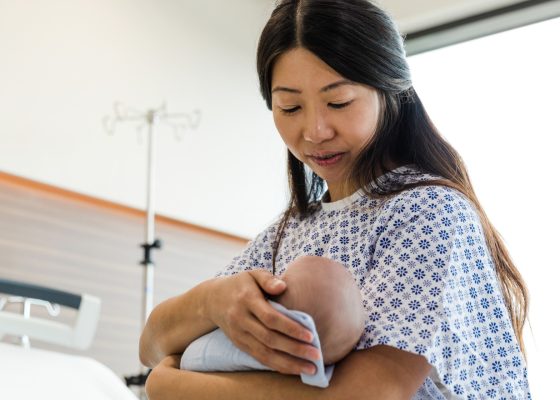Representatives from the National Association of Specialist Obstetricians and Gynaecologists travelled to Canberra today to discuss the way forward.
Today advocates for women’s health travelled to Canberra to call for a national senate inquiry into maternity funding and to raise “deep concern” over the state of maternity services nationally, particularly in Queensland.
The calls follow the analysis of a paper, published by the CSIRO, demonstrating “explosive evidence” that despite rising investment in maternity services in Queensland, measures of positive outcomes are slipping, National Association of Specialist Obstetricians and Gynaecologists president Associate Professor Gino Pecoraro told The Medical Republic.
The paper found that “there has been an increase over time across Queensland in the cost of childbirth in public hospitals and in the private system, while the cost of home birth has remained static”.
“From 2012 to 2018 private hospital, privately funded births and home births had the lowest mean total costs,” the authors wrote.
“For most hospital and health services this increase in cost is also associated with little change or a decline in the percentage of births with a positive outcome.”
According to Professor Pecoraro, part of the problem is the “public system’s implementation of and reliance on a midwifery centric model to deliver services”.
“This is more expensive, has less favourable outcomes as measured by the ‘Composite Birth Outcome Measure’ and is a disincentive to obstetricians wanting to work in the public sector as our survey of Queensland obstetricians has shown.”
The sector risks “pitting obstetricians and midwives against each other in turf wars”, which would be an unhelpful pursuit given that both disciplines, and other including paediatrics, anaesthetics and obstetric medicine, must work “in harmony to achieve the best outcomes” for women, said Professor Pecoraro.
“The data shows an advantage in getting people out of the public system back into the private system which delivers better outcomes at a considerable cost saving per baby delivered.”
NASOG has called for funding to collect robust data to help shape future service provision that is analysed based on “intentions to treat” – meaning that the data is recorded based on where the baby was planned to be delivered – which is the international standard.
“We are asking the government (or opposition, should there be a change of government following the state election later in the year), to announce an externally run, fully funded, independent review based on intention to treat women at the start of their pregnancy and delivery journey.”
The hope is that better data on models of care and “frank and fearless” communication to parents will improve informed choice.
NASOG has also called for federal intervention to improve affordability of private maternity care and universal inclusion of maternity care in basic hospital cover.
“Data shows that private obstetrics is the most cost-efficient way to run maternity services with the lowest rates of poor patient experience,” said Professor Pecoraro.
“NASOG is happy to work with all political players to improve maternity services for the women and families of Queensland and Australia.”
This article was updated at 10.40am on 25 March 2024.



